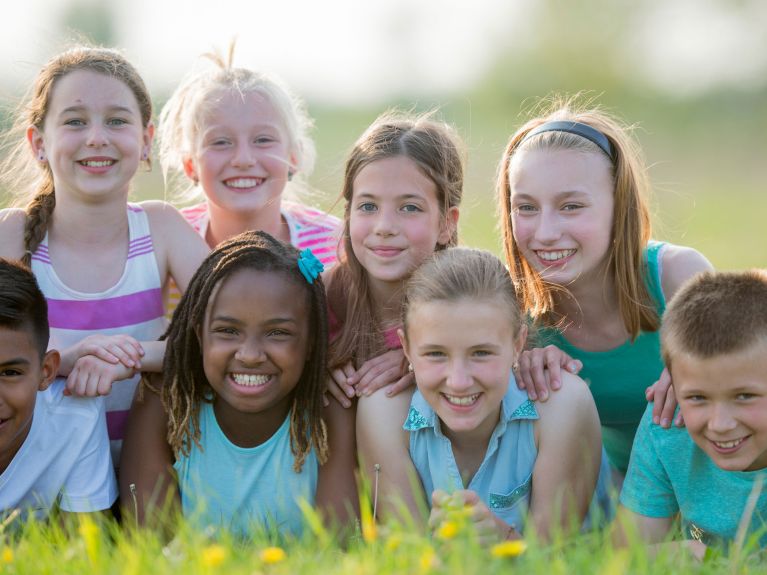What is important for children in Germany
A study reveals children’s wishes, values and concerns – and their attitude to refugees. Here are the most important facts

What’s on children’s minds in Germany? Answers have just been provided by the World Vision Children’s Study 2018. For this representative survey the children’s charity held conversations with 2,500 children between the ages of six and eleven. In addition to family, school and leisure, it was also about children’s attitudes to refugees.
Children in Germany – quick facts
How do children perceive refugees?
Most children have met people who are seeking protection in Germany. Most frequently they come into contact with refugee children at school. The overwhelming majority empathize with them and speak of positive experiences; one in five have made friends with refugees of the same age.
The more time German and refugee children spend together the better it is for both sides.
Children in Germany are more worried about xenophobia in society (45 percent) than about the growing influx of migrants (28 percent).
How important are friendships?
Friendships are very important to boys and girls. More than a third have ten or more friends, with two to three really close friends. However, shared time is scarcer today than it was ten years ago. Only every second child meets up with friends very often. On the other hand, friendships are increasingly cultivated via social media.
80 percent of children have a say in family life, for example which friends they meet, how they spend their free time, or what kind of clothes they wear.
How many children have a cell phone?
45 percent of all six- to eleven-year-olds have their own mobile phone – usually a smartphone. The internet is becoming more and more important for children. 67 percent of the older ones are online regularly.
Do kids like to go to school?
Most like to go to school. One in two elementary school children rate lessons, teachers and classmates very positively. Girls are more ambitious than boys. They tend to assess their academic performance more often as ‘very good’ or ‘good’ and mention the Abitur school-leaving certificate more frequently as their educational goal.
What scares children
Every second child is afraid of the outbreak of war; fear of terrorist attacks has also increased. Many also worry about environmental pollution. The biggest day-to-day worries are bad marks in school, bullying and parents’ unemployment.
Newsletter #UpdateGermany: You would like to receive regular information about Germany? Subscribe here to:

